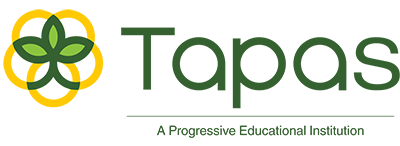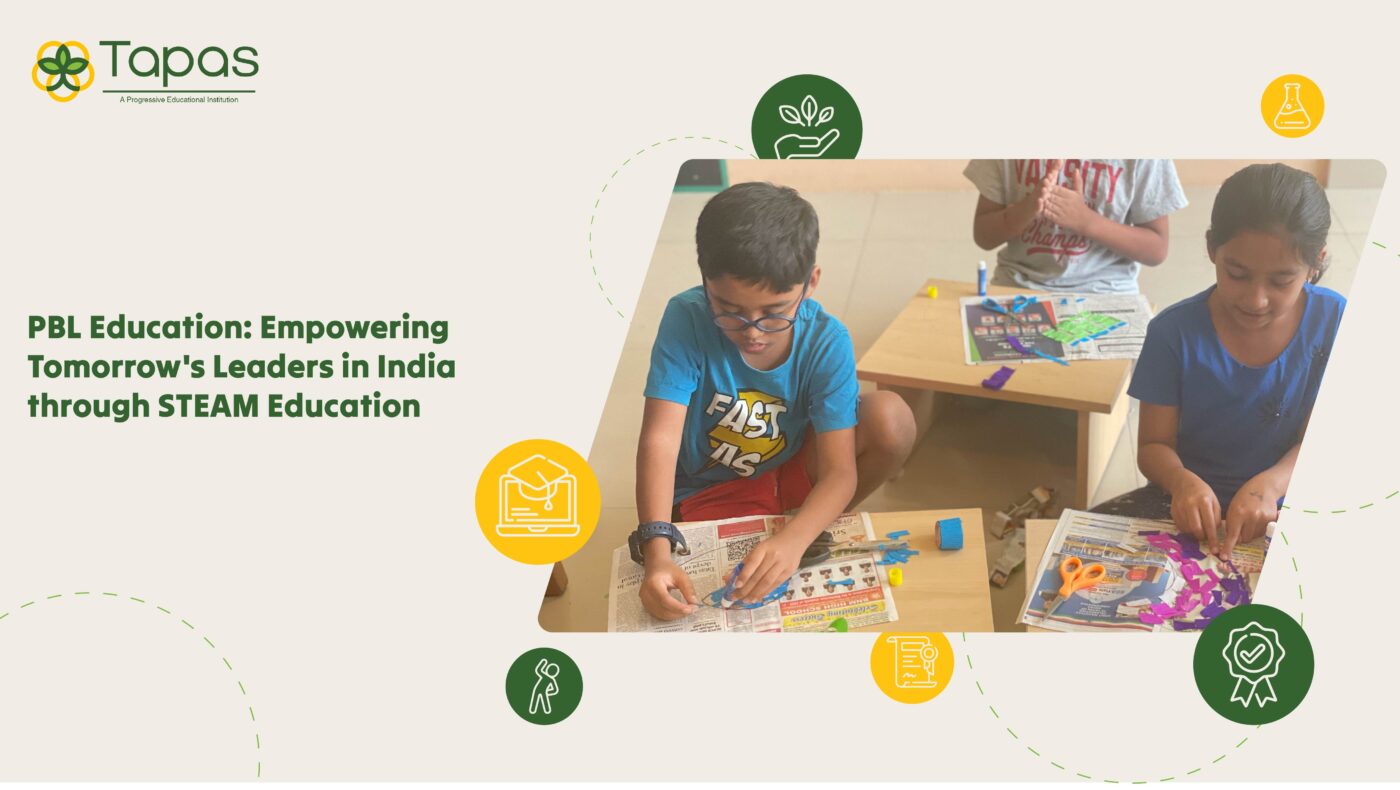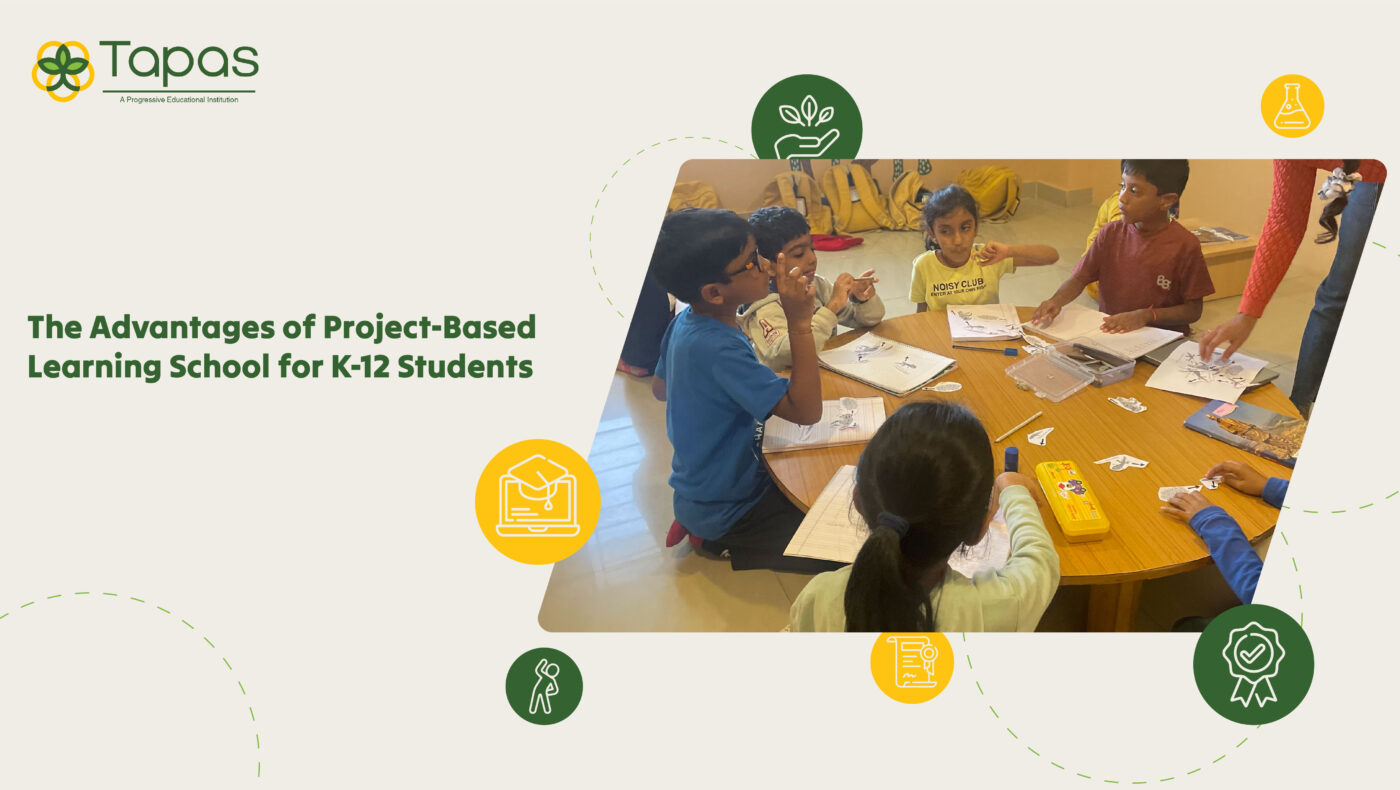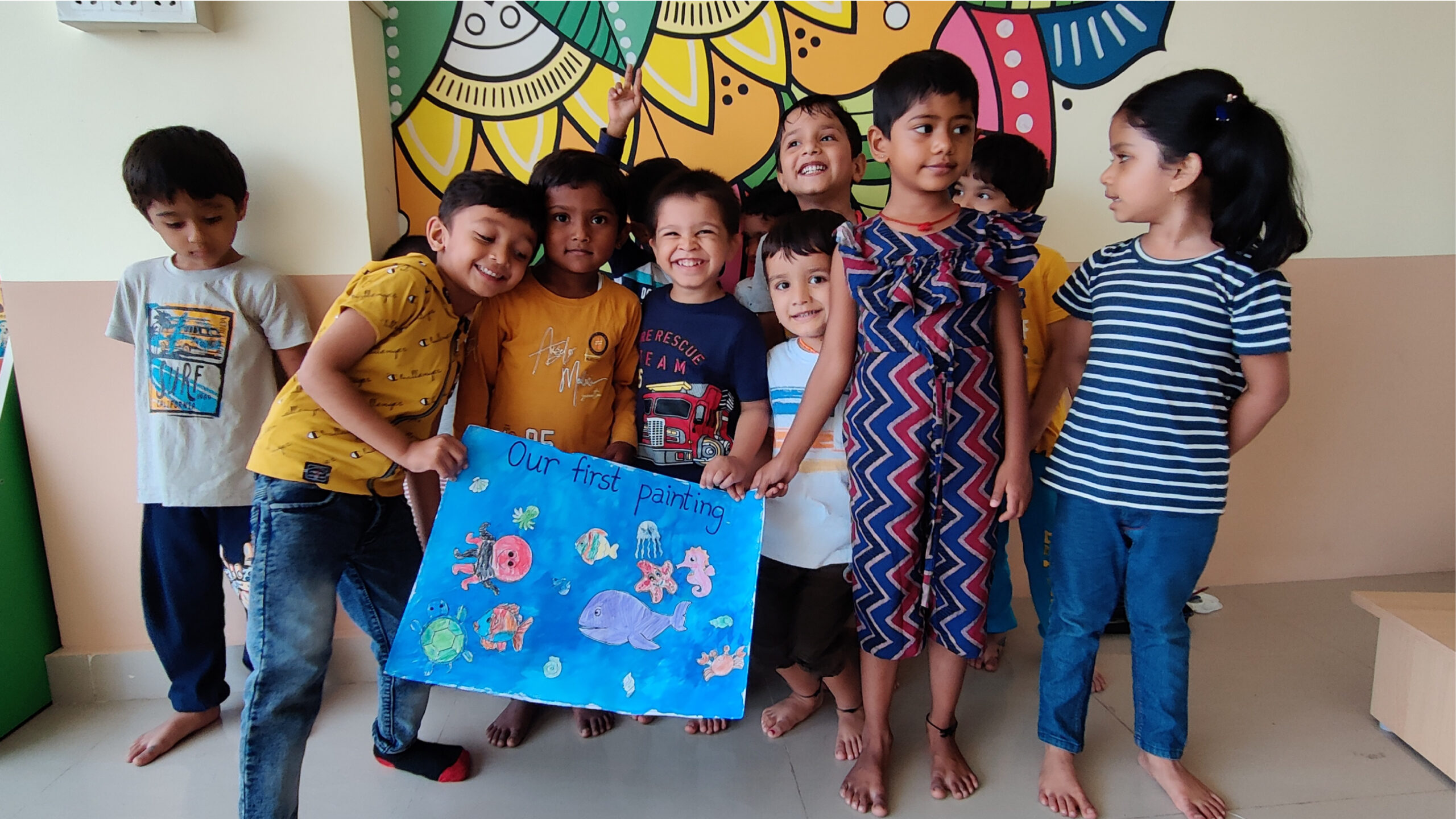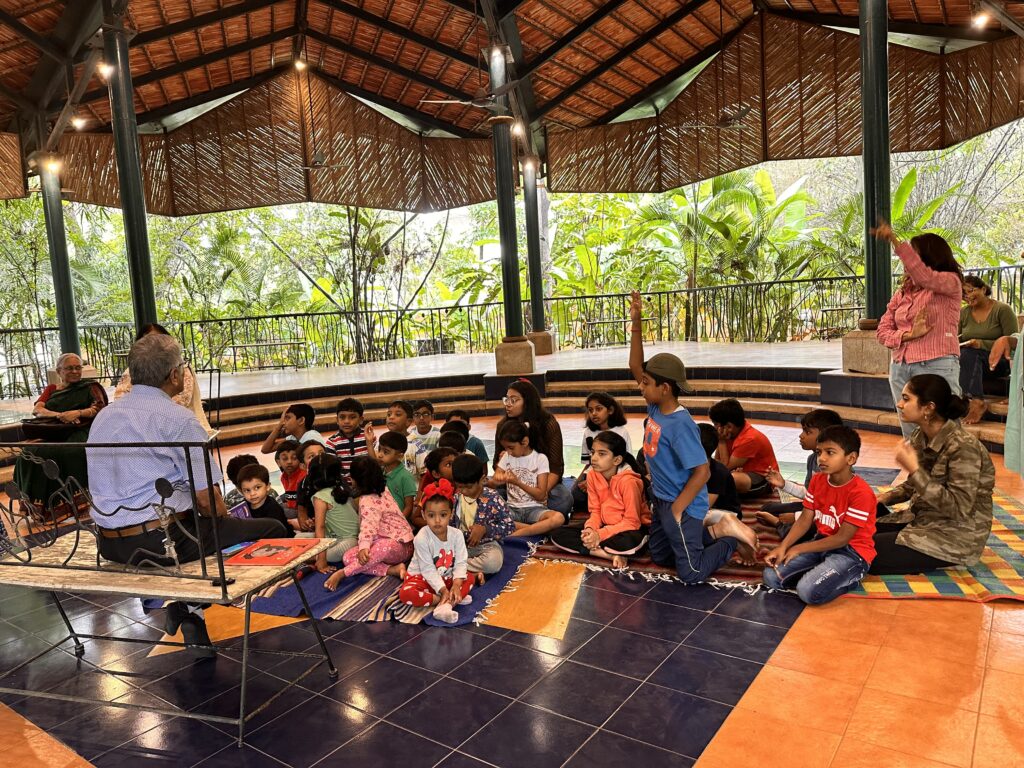PBL Education: Empowering Tomorrow’s Leaders in India through STEAM Education
PBL Education, or Project-Based Learning, is a dynamic and innovative approach to education that places students at the center of their learning journey. In India, it is emerging as a transformative force, nurturing future leaders who are not just academically proficient but also equipped with practical skills and a holistic understanding of the world.
At its core, PBL Education revolves around students actively engaging in real-world projects, where they explore complex issues, tackle challenges, and apply their knowledge to find solutions. This method goes beyond traditional rote learning and textbook memorization.
Why PBL Education is Essential for Empowering Future Leaders in India:
- Holistic Learning: PBL integrates various disciplines, fostering a well-rounded education that nurtures leaders capable of addressing multifaceted challenges.
- Critical Thinking: It cultivates critical thinking and problem-solving skills, essential for leadership roles in a rapidly changing world.
- Collaboration: PBL promotes collaboration and teamwork, preparing future leaders to work effectively with diverse teams.
- Innovation: Encouraging creativity and innovation, PBL equips students to find problem-solving to complex problems.
- Adaptability: In a globalized world, adaptability is key. PBL helps students become agile and open to change.
- Global Perspective: PBL encourages students to think globally, understand different cultures, and become responsible global citizens.
- Preparation for the Workforce: PBL provides practical skills and real-world experience, making graduates highly employable.
- Leadership Development: By fostering skills like communication, leadership, and ethical decision-making, PBL molds students into future leaders.
As India strives to meet the challenges of the 21st century, PBL Education stands as a beacon of empowerment, shaping leaders who will drive innovation, foster change, and make a positive impact on society. To learn more about PBL’s transformative power, visit Tapas Education.
The Significance of STEAM Education
Integrating Science, Technology, Engineering, Arts, and Mathematics (STEAM) into the curriculum is paramount for fostering a holistic learning experience that empowers future leaders in India. STEAM education transcends traditional boundaries, encouraging students to connect the dots between these disciplines and apply their knowledge in innovative ways.
- Interdisciplinary Problem Solving: STEAM fosters interdisciplinary thinking, equipping students with the ability to approach complex challenges from multiple angles. This skill is invaluable for leadership roles where diverse problem-solving is required.
- Innovation and Creativity: By encouraging creativity and innovation, STEAM nurtures leaders who can envision new solutions, products, and technologies, driving progress in various fields.
- Practical Application: The integration of hands-on learning experiences in STEAM education ensures that students gain practical skills and real-world exposure, preparing them for leadership roles where they must navigate complex situations.
- Global Perspective: In our interconnected world, understanding the global implications of decisions is crucial for leaders. STEAM education promotes global awareness and a sense of responsibility.
- Ethical Decision-Making: STEAM curricula often include discussions on ethics and societal impact, fostering leaders who make ethically sound decisions.
- Inclusivity: STEAM’s inclusive approach ensures that students from diverse backgrounds have equal opportunities to excel, promoting diversity in future leadership.
- Adaptability: As the world evolves, adaptability becomes a leadership hallmark. STEAM education cultivates adaptability by teaching students to embrace change and continuous learning.
- Problem-Focused Learning: STEAM encourages students to identify real-world problems and work collaboratively to find solutions. This prepares them for leadership roles where they must address complex, multifaceted challenges.
In India, where leadership plays a pivotal role in addressing societal and global issues, STEAM education is a catalyst for nurturing well-rounded, forward-thinking leaders. It equips them with the skills, knowledge, and mindset needed to drive innovation, advocate for positive change, and excel in a rapidly evolving world.
STEAM Education
STEAM Education in India is an integrated approach that combines Science, Technology, Engineering, Arts, and Mathematics to offer a well-rounded learning experience. Here are a few examples showcasing its impact:
- Robotics Workshops: Many schools in India now incorporate robotics into their curriculum. Students learn not only about mechanics and electronics but also gain problem-solving skills by designing and programming robots.
- Art-Infused Science: In STEAM programs, science concepts often blend with artistic creativity. Students might explore biology through art by creating anatomical models or study environmental science by producing eco-friendly art projects.
- Mathematical Art Exhibitions: Some schools organize exhibitions where mathematical concepts are visually represented through art installations, engaging students in both disciplines.
These examples illustrate how STEAM education encourages multidisciplinary learning and practical application of knowledge.
Hands-on learning in PBL: Students actively apply knowledge, fostering critical thinking and skills for real-world challenges.
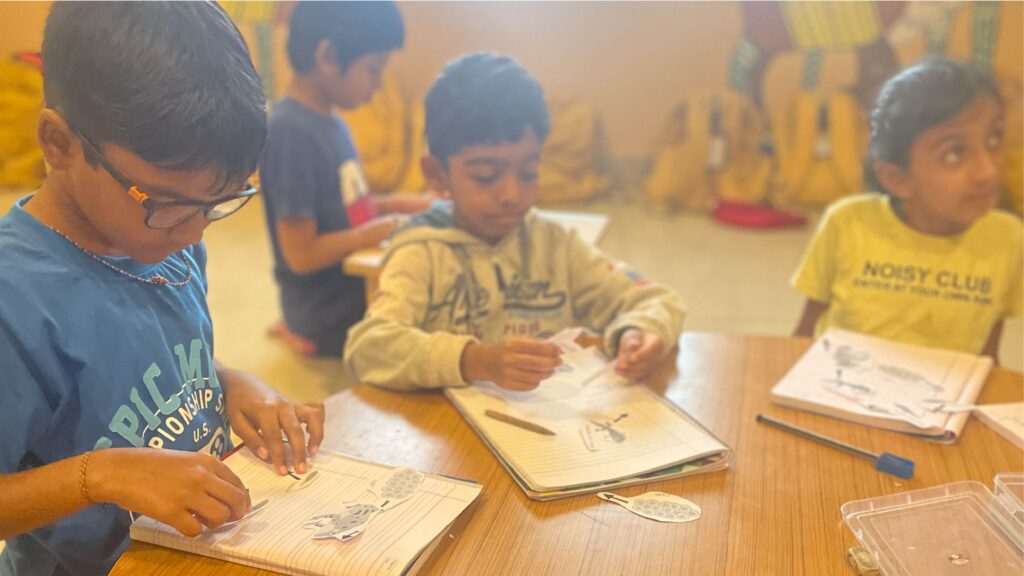
Project-Based Learning (PBL) places a strong emphasis on hands-on, real-world projects that deeply engage students and cultivate essential problem-solving skills. Through PBL, students tackle authentic challenges that mimic scenarios they might encounter as future leaders. This approach propels learning beyond the confines of textbooks and classrooms, encouraging students to apply their knowledge to tangible situations. By working on complex projects, they refine their critical thinking, collaboration, and decision-making abilities, preparing them for leadership roles that demand innovative solutions to real-world issues. PBL equips India’s future leaders with practical skills and the confidence to navigate diverse challenges effectively.
Critical Thinking and Creativity
Project-Based Learning (PBL) is a dynamic educational approach that fosters critical thinking, creativity, and innovation, all of which are essential qualities for future leaders. In a PBL environment, students are presented with complex, open-ended challenges that require them to think critically, analyze situations, and develop innovative solutions. This process encourages them to explore various perspectives, test hypotheses, and adapt strategies based on real-world feedback.
PBL also promotes creativity by allowing students to approach problems in unique ways, unleashing their imagination, and encouraging them to think outside the box. This creative freedom not only enhances problem-solving skills but also nurtures an innovative mindset, preparing students to tackle novel challenges and develop groundbreaking ideas.
Leadership roles often demand the ability to navigate uncertainty, inspire others, and adapt to rapidly changing circumstances. PBL equips students with the skills and mindset needed to thrive in such roles, making it a crucial educational strategy for nurturing India’s future leaders.
Collaborative Skills
Project-Based Learning (PBL) is a dynamic educational approach that places a strong emphasis on collaboration and teamwork. Through PBL projects, students develop essential skills for leadership roles that require effective team collaboration. They learn how to communicate ideas, delegate tasks, and harness the collective strengths of diverse team members to achieve common objectives. This hands-on experience nurtures empathy, adaptability, and leadership within group dynamics. Such skills are invaluable for future leaders who will lead and motivate diverse teams in an increasingly globalized world. PBL equips students with the collaborative competencies essential for success in leadership positions.
Preparation for the Future
PBL (Project-Based Learning) equips students with the skills needed to thrive in today’s rapidly evolving job market. As the workplace landscape undergoes continuous transformation, adaptability, critical thinking, and problem-solving abilities are in high demand. PBL not only imparts these skills but also encourages a growth mindset, where challenges are seen as opportunities for innovation. By engaging in real-world projects, students develop a deep understanding of practical applications, preparing them to tackle complex issues in their future careers. PBL’s emphasis on creativity, teamwork, and STEAM integration ensures that students are well-prepared to excel in diverse fields, making it an invaluable educational approach in today’s dynamic world.
For more information, visit the URL.
Adaptability and Resilience
- PBL exposes students to real-world challenges, fostering adaptability in varying situations.
- It encourages students to embrace setbacks as opportunities for growth and resilience.
- Through teamwork, students learn to navigate diverse perspectives and adapt their approaches.
- PBL promotes an innovative mindset, enabling students to adapt to emerging technologies and trends.
- Students emerge from PBL equipped with the ability to confidently tackle unforeseen challenges in leadership roles.
Global Perspective
Project-Based Learning (PBL) plays a pivotal role in nurturing students into responsible global citizens. By engaging in projects that address global issues, students gain a broader perspective on their role in the world. One powerful example of this is when students take on projects related to environmental sustainability. For instance, a PBL project centered around climate change might involve researching its impact on various regions, collaborating with peers worldwide to gather data, and proposing solutions that transcend borders.
Through such projects, students not only grasp the interconnectedness of global challenges but also develop a sense of responsibility to address them. They learn about the importance of sustainable practices, international cooperation, and the ethical dimensions of their actions. PBL projects like these empower students to envision themselves as contributors to a better, more sustainable world, preparing them to be compassionate and globally conscious leaders in the future.
Conclusion
Project-Based Learning (PBL) with a STEAM focus holds the key to empowering India’s future leaders. It nurtures critical thinking, creativity, collaboration, adaptability, and global consciousness, essential qualities for leadership roles in our ever-changing world. As we look to the horizon of education in India, we must support and promote STEAM education and PBL initiatives like those at https://tapaseducation.com/. By doing so, we invest in a generation of leaders who will not only excel in their careers but also drive positive change and innovation, ensuring a brighter and more prosperous future for India and the world. Join us in this educational journey; together, we can make a difference.
